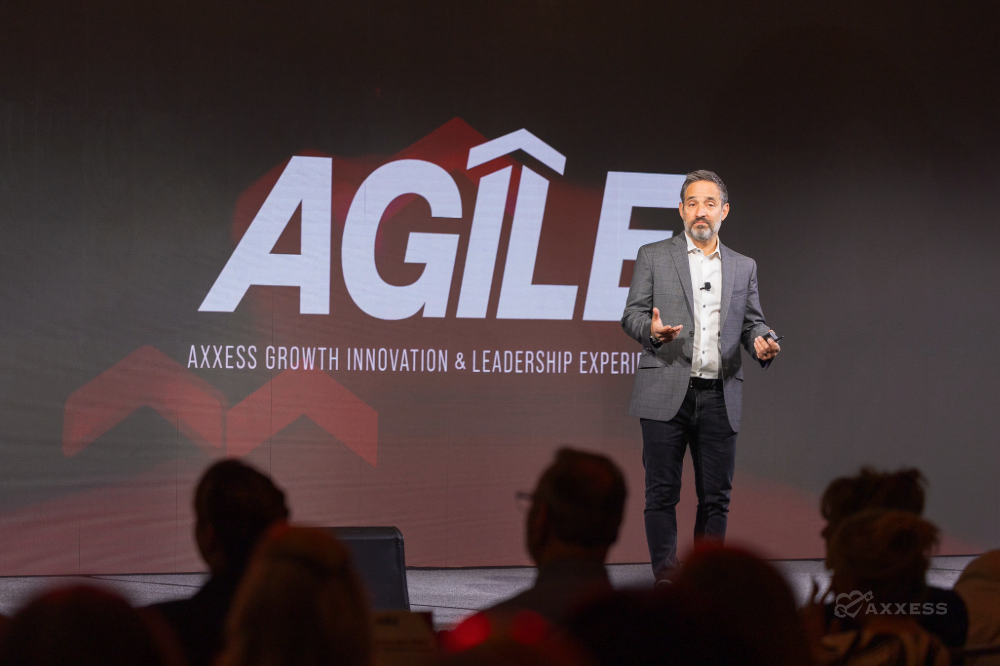
At the 2025 Axxess Growth, Innovation, and Leadership Experience (AGILE), keynote speaker Josh Linkner set the stage with the idea that we are living through our generation’s printing press moment. The rise of artificial intelligence (AI) is redefining how we live, work and deliver care at home.
In this session, he discussed how the key to thriving in the age of AI lies in how we respond to technological change. This response can enhance personal and professional growth.
Embracing AI’s Potential for Human Empowerment
Linkner began by sharing a personal story. “I lost my dad back in 2007 and he spent his last days in home hospice, which was really a gift,” said Linkner.
That experience, he explained, is what drives his passion for using technology to enhance, rather than replace, human care.
Linkner emphasized AI’s potential to improve performance and reduce costs, citing studies showing a potential reduction in operating costs of up to 25% across multiple industries.
Five Principles for Thriving in the Age of AI
Linkner outlined five key principles to guide us through the rapidly evolving landscape of home healthcare.
-
Start before you’re ready: Progress favors action over perfection. Whether you’re launching a new care program or improving patient engagement, waiting for ideal conditions means missing the moment.
-
Break it to fix it: Linkner urged leaders to challenge the norm. Whether reimagining workflows or patient experiences, innovation begins by seeing the familiar through a new lens.
-
Use every drop of toothpaste: You don’t need a massive budget to make progress. Being resourceful is a competitive advantage.
-
Seek the unexpected: Innovation often comes from the least expected places. Unexpected moments can lead to lasting breakthroughs in care delivery and patient trust.
-
Fall seven times, stand eight: Innovation isn’t about getting it right the first time. It’s about sticking with it until you do.
“Confidence isn’t expecting to always be right. It’s knowing how to bounce back,” explained Linkner.
Cultivating Small, Daily Acts of Creativity
Linkner discussed the importance of fostering small, everyday acts of creativity, which he called “big little breakthroughs.”
“The best innovators don’t swing for the fences with every pitch,” said Linkner. “They’re not taking high-risk moonshots all the time. Instead, they cultivate small, daily acts of creativity that stack over time.”
In a healthcare setting, this could mean a new approach to scheduling, a reimagined patient onboarding process, or a new way to communicate with families.
“It’s those little postage stamps of ideas, creativity, innovation, those add up. That is our way to engage in the age of AI,” emphasized Linkner.
A Future We Build Together
Linkner closed with a challenge and an invitation.
As care increasingly shifts into the home, we’re doing more than adapting to change, we’re helping to define it. This means tapping into the parts of us that machines can’t replicate: compassion, creativity and courage.
“When we think about this mission together with the incredible folks at Axxess, it’s time. Let’s build the future of care at home together,” said Linkner.
With more than 550 attendees, more than 50 sponsors and countless connections made, AGILE 2025 was a massive success for everyone. Click here to register for AGILE 2026, May 4-6 in Dallas.
